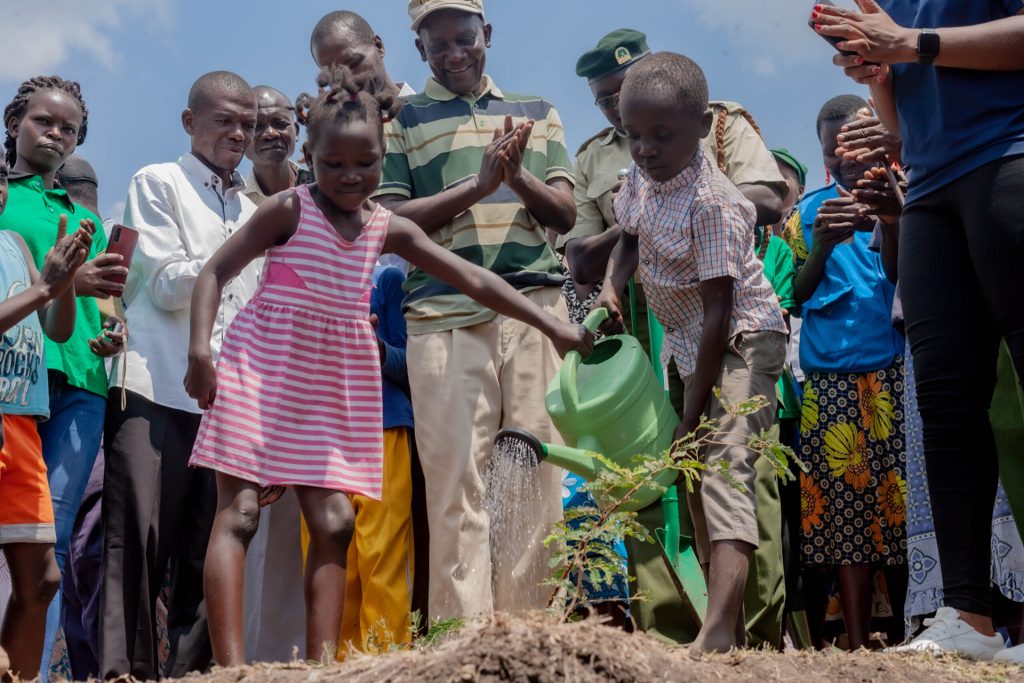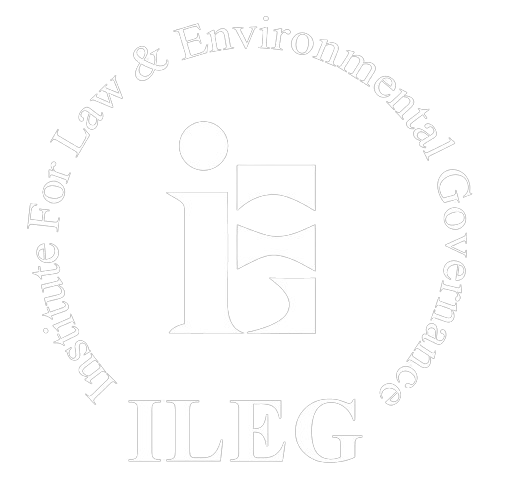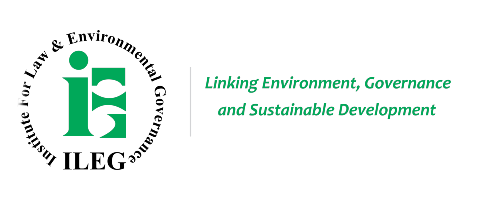OUR PROJECTS
Project Name
Implementation of Article 71 of the Constitution of Kenya, 2010
Program
Environment, Democracy & Justice Past Projects
Duration
2020
Donor
ILEG
PROJECT OVERVIEW
Kenya is in a period of interest in exploration and development of oil, natural gas and other mineral resources in the recent past. Other natural resource sectors such as fisheries, forests, and hydro-power are also increasingly attracting investments both from local corporations and multinational companies. Contracts relating to these resources are in most cases signed between the national government and the companies, with parliament.
The Constitution of Kenya 2010 sought to change this by requiring parliament to ratify agreements relating to natural resources. The Constitution states in Article 71 states that a “transaction is subject to ratification by Parliament if it––(a) involves the grant of a right or concession by or on behalf of any person, including the national government, to another person for the exploitation of any natural resource of Kenya.
The Constitution further requires Parliament to enact legislation providing for the classes of transactions subject to ratification and to give effect to the provision above. The timeline given by the Constitution for the said legislation to be enacted by Parliament is 5 years from the promulgation of the Constitution. This time limit expires in August 2015 which means the legislation has to be enacted before then.
In order to comply with this requirement, the Ministry of Environment, Water and Natural Resources (MEWNR) set up a technical Committee and hired a Consultant to develop the Bill. The Consultant, Prof Albert Mumma from University of Nairobi has since developed a draft Bill, the Agreements Relating to Natural Resources (Ratification by Parliament) Bill. Following invitation from the Ministry, ILEG Executive Director Benson Ochieng has been part of the Technical Committee working on the Bill.
Draft bill on Agreements relating to Natural Resources (Ratification by parliament) Act.
The bill is divided into six parts: Preliminary; Classes of Transactions; Submission of the agreements to the cabinet secretary; Procedure for ratification; Administrative arrangements; and Miscellaneous provisions. The following is a brief overview of the main features of the draft bill.
Preliminary
An agreement relating to natural resources is defined in the bill as an agreement whether or not in writing, which grants to a party the right to exploit a natural resource and includes permit issued under county or government legislation.
Analysis
The above means therefore an agreement can either be a contract or a license. Whether or not the contract can be oral is yet to be agreed upon. Of interest to our discussion though is the aspect of a permit as a form of an agreement. The Bill therefore alludes that a person seeking to exploit natural resources in Kenya can present to parliament for ratification a contract or a permit issued by a local authority in line with legislation .In this case the permit becomes precedes the contract, while the contract in our case precedes the permit.
The Bill defines a beneficiary as one who has been granted the right to exploit, while a grantor is one who grants this right.
The term cabinet secretary is defined in bill as the cabinet secretary for the time being responsible for natural resources.
Analysis
This definition presents a conflict due to the existence of the problem of multiplicity of players as regards management of natural resources in Kenya. This therefore raises the question of, who is to be the cabinet secretary of in this Bill. Article 132 of the Constitution of Kenya seems to be the proposed solution. This Article provides empowers the president to appoint cabinet secretaries in accordance with Article 152.The fallback position in case the president fails to appoint a cabinet secretary seems therefore to be the one adopted by the Bill.
Natural resources mean natural resources as defined in Article 260 of the Constitution. This refers to the physical non-human factors and components.
Analysis
This definition would seem likely to gain criticism for being too broad. It however is worthy to note that a new definition by the Bill would risk a failure to include all natural resources in Kenya and thus the definition by the constitution would seem to be appropriate as captures it all.
Parliament is defined as the National Assembly and the Senate, while the relevant house is either of both depending on the context in which the phrase is used.
Analysis
According to the Bill, this means both houses will ratify the agreement. The issue however is which committee of the parliament will be responsible for this?
Section 3 provides for transactions entered into between the effective and commencement date. These transactions will be deemed valid. It further states that any exploitation of natural resource in Kenya contrary to provisions of the Bill will be deemed unjust enrichment and beneficiary of exploitation refund to the government financial benefit obtained from the exploitation.
Analysis
Two issues are raised in this context. The Bill does not provide for agreements already entered into before the effective date. The second issue is, the requirement to pay a refund may encourage furtherance of none ratified transactions as the refund maybe too little a burden to the beneficiary, hence suggestion to put an alternative penalty. The refund costs should also be inclusive of costs of loss and destruction to environment.
Classes of transactions
Section 5 provides for 5 classes of transactions. These are concessions relating to exploitation of endangered species, protected areas, with a national of a foreign state, for taking resources out of Kenya, those under the Public Private Partnership Act, 2013 and for private commercial benefit.
Section 5(2) provides for transactions that shall not be subject to ratification unless parliament by a majority vote, decides to ratify transaction relating to this section. These transactions are those that are for subsistence purposes, for scientific research, educational or non-commercial purposes, those that have already been through the process of public consultation and those that have followed an open tender process in line with our laws.
Analysis
This section though imperative in one sense, as the burden on an individual person of this law would be burdensome and costly. In light of this, it therefore opens a doorway for a number of issues. First, there is a risk of people presenting their transactions in this classes as a disguise, secondly, this section is oblivious to intellectual property rights of indigenous people and third the tendering process in Kenya is always rigged with corruption and this is just an open door for the same.
For purposes of Section 5(2), Section 6 requires that these agreements should anyway be notified to the cabinet secretary. It further states that these transactions will become valid after 30 days have lapsed, without a majority vote.
Analysis
One would argue that this section beats the purpose of section 5(2) as still in a subtle way the transactions are still part of the rigorous process of getting approval. The argument however is this section is not meant to beat it’s purpose, but to acknowledge that parliament retains the power to ratify any transaction regardless of its nature as empowered by the Constitution.
Section 6(2) states that an agreement entered into during a period when parliament is not in session, the time will begin to run on the day parliament resumes. This is to deter people from taking advantage of time when parliament is not in this session to enter into these transactions.
Submission of agreements to cabinet secretary
A beneficiary is required to submit the agreement to the cabinet secretary within 14days of entering into the agreement. This is to be accompanied by a memorandum that is to state as provided for in section 7(2).
Analysis
The requirements that accompany the agreement in this section, fails to include a clause on the analysis of sustainability of the exploitation. This is imperative as the transactions that are ratified should be geared towards sustainability as required by our constitution.
Within 7 days of its receipt the cabinet secretary will give one copy of the agreement to the clerk in each house of parliament. Section 9 provides that there is an implied term that compliance with the Act is a condition to an agreement’s validity as lack of agreements not ratified in accordance with the Act shall be void; Section 10.No public officer is bound to give effect not such an agreement.
Analysis
Kenyan public officers are notorious for sometimes if not most failing to comply with the law. It is in line of this that it was suggested that to include a criminal offence for both the beneficiary and public officer who fails to comply with this requirement.
Procedure for ratification
Upon receipt from cabinet secretary, the clerk will refer it to relevant committee of the house. This transaction shall then be publicized inviting the public to give their comments within seven days, Section 11.
Analysis
The question that arises therefore is, which media platform would then be used to divulge this information to reach the public most effectively and even then, would 7days suffice, as sufficient public consultation?
Section 12 provides for preliminary determination of the class that the transaction falls in, to be done within 14days.Upon determination, this will be submitted to the speaker of the relevant house. Where neither house passes resolution by a majority vote within 30 days, the agreement shall become effective in terms of section 6.
Where agreements are subject to ratification, the agreement will be tabled in the relevant house within 90days.The agreement will be deemed ratified unless within 120days the relevant house resolves it not ratified or requires modifications on the agreement, which then will go through the same procedure, section 14.If referred to mediation, the parliament will resolve to ratify or not ratify within a further 60days.
Where there is a different resolution in the houses, section 15 states that procedure to be followed is that in Article 112 and 113 of the Constitution.
Analysis
The timelines provide by the Bill are well reasoned, however, the risk of backlog of the numerous agreements being submitted to the parliament seem like an eminent danger to the successful and realistic running of the ratification process.
The relevant considerations the parliament should consider before ratifying agreements are listed in section 17.In making this considerations, parliament is required to be guided by relevant considerations and remain objective on the merits and demerits of the agreement.
Analysis
Additional consideration that have suggested:
a)Host community benefit
b)Environmental sustainability
Where the parliament is requested to ratify or require modifications on an agreement, it will avail opportunity to the parties to make oral presentation to the committee of relevant house, section 17.
Administrative procedures
A secretariat is established under section 19 to discharge functions of cabinet secretary. A register is to be maintained for the agreements, in an electronic format and members of public may inspect it at no charge or on payment of reasonable fee for a copy made. This is to be duly stamped.
Where a party pleads confidentiality, they will apply to the cabinet secretary who will communicate as soon as practicable. Where information is certified confidential, the agreement will not be availed to the parliament, only its summary Confidentiality of any agreement may be challenged in the High Court.
Analysis
This may also be an avenue that maybe exploited by some parties, hence the court platform to challenge the agreement. The question however, what qualifies an agreement’s confidentiality? Is an agreement still confidential when the information could cause public harm? Non-disclosure should not be to the extent of causing harm to the society.
Miscellaneous provisions
These provisions Section 23-26 provide for regulations, computation of time, prohibition of amendments following ratification and offences.
Analysis
The offences contrary to the Act are few compared to the various offences that can arise from the process of ratification. It was strongly suggested that the offences list should include offences such as falsifying of documents, public officer and individual who acts contrary to act.
Conclusion
The draft bill has well captured the main issues that are relevant. It is however noteworthy that a few vital elements that have been raised in various platforms and public consultations that have been overlooked and it is with this we hope the same shall be noted and included in the draft bill,for it to be more legally sound.
*Ruth Nzioka is a Legal Researcher at the Institute for Law and Environmental Governance (ILEG). The views expressed here are purely her own and do not necessarily reflect ILEG’s position.
STORY BOARD
Completely synergize resource taxing relationships via premier niche markets. Professionally cultivate one-to-one customer service with robust ideas. Dynamically innovate resource-leveling customer service for state of the art customer service. Objectively innovate empowered manufactured products whereas parallel platforms.
Holistically predominate extensible testing procedures for reliable supply chains. Proactively envisioned multimedia based expertise and cross-media growth strategies. Seamlessly visualize quality intellectual capital without superior collaboration and idea-sharing. Holistically pontificate installed base portals after maintainable products completely pursue scalable customer service.

PROJECT OUTCOME
Completely synergize resource taxing relationships via premier niche markets. Professionally cultivate one-to-one customer service with robust ideas. Dynamically innovate resource-leveling customer service for state of the art customer service. Objectively innovate empowered manufactured products whereas parallel platforms.
Holistically predominate extensible testing procedures for reliable supply chains. Proactively envisioned multimedia based expertise and cross-media growth strategies. Seamlessly visualize quality intellectual capital without superior collaboration and idea-sharing. Holistically pontificate installed base portals after maintainable products completely pursue scalable customer service.
PROJECT LOCATION
Completely synergize resource taxing relationships via premier niche markets. Professionally cultivate one-to-one customer service with robust ideas. Dynamically innovate resource-leveling customer service for state of the art customer service. Objectively innovate empowered manufactured products whereas parallel platforms.
Holistically predominate extensible testing procedures for reliable supply chains. Proactively envisioned multimedia based expertise and cross-media growth strategies. Seamlessly visualize quality intellectual capital without superior collaboration and idea-sharing. Holistically pontificate installed base portals after maintainable products completely pursue scalable customer service.

20+ orphanage visit in 2 months
Lorem ipsum dolor sit amet, consectetur adipiscing elit. Ut elit tellus, luctus nec ullamcorper mattis, pulvinar dapibus leo.
230 People Have donated
Lorem ipsum dolor sit amet, consectetur adipiscing elit. Ut elit tellus, luctus nec ullamcorper mattis, pulvinar dapibus leo.
30+ people joined
Lorem ipsum dolor sit amet, consectetur adipiscing elit. Ut elit tellus, luctus nec ullamcorper mattis, pulvinar dapibus leo.
1.2m Raised for this initiate
Lorem ipsum dolor sit amet, consectetur adipiscing elit. Ut elit tellus, luctus nec ullamcorper mattis, pulvinar dapibus leo.
"The job market of the future will consist of those jobs that robots cannot perform. Our blue-collar work is pattern recognition, making sense of what you see. Gardeners will still have jobs because every garden is different."
More Projects
The Access Initiative (TAI).
TAI is the world’s largest network of civil society organizations dedicated to ensuring that local communities have the rights and abilities to gain access..
Gender inclusive natural resource governance through enhanced use of media and communication.
Media and communication are critical to deepening good governance and other democratic processes. This project is intended to support media practitioners, Civil Society Organizations (CSOs) and communities to start…
Putting People at the center.
Specifically, the project seeks to enhance community participation in development and implementation of county legislation and policy in county governments…

ILEG is an independent, non-profit public interest law and policy organization focused on promoting sustainable development. We work with local communities, governments, the private sector and civil society organizations (CSO’s) to ensure fair, balanced and equitable development policy choices to improve peoples’ lives and protect the environment.
© 2024 ILEG KENYA All Rights Reserved | Terms of Service | Privacy Policy
